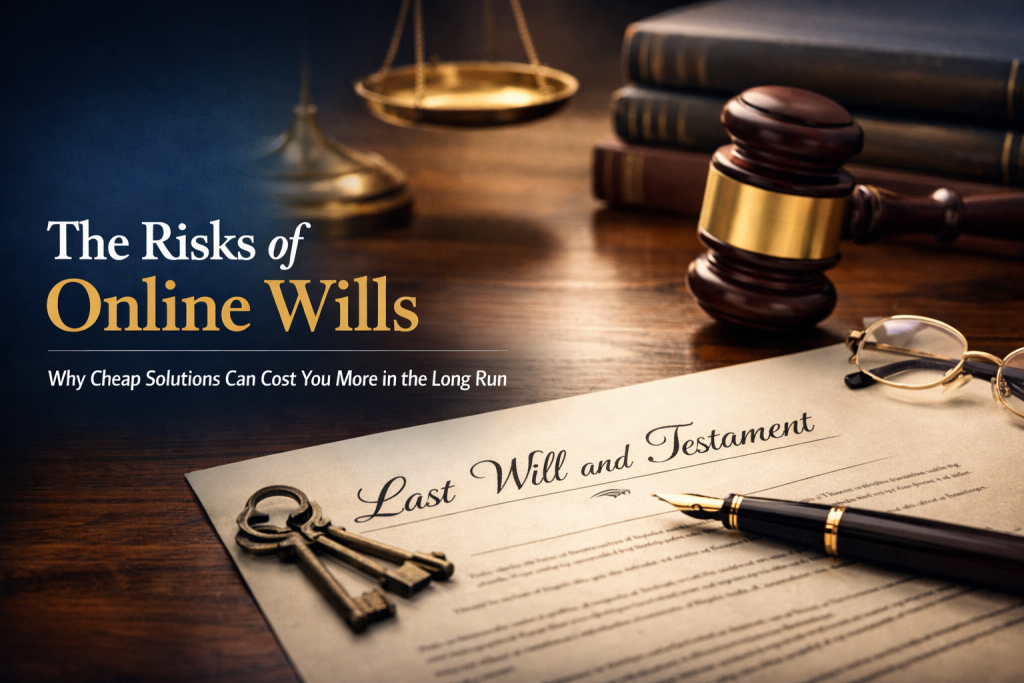What is an executor?
An executor is a person appointed in a will to manage the willmaker’s estate and carry out the wishes set out in the will after the willmaker has died.
What is an estate?
An estate comprises of all of the assets, including property, and the liabilities (or ‘debts’) of a person that exist after their death.
There are some assets which do not form part of the willmaker’s estate after their death. Common examples of these assets are:
- Superannuation and life insurance proceeds that are not paid to the estate;
- Jointly owned property (where two or more people are not registered as tenants-in-common; and
- Undistributed assets of a family trust.
What does an executor do?
The executor is responsible for managing and protecting all of the assets of the estate until they are distributed to the beneficiaries.
The executor must also ensure all liabilities of the estate are paid prior to the distribution to beneficiaries.
Who arranges the funeral?
The executor is responsible for making the funeral arrangements if the willmaker has not already made those arrangements.
The executor should follow any directions left by the willmaker as to the funeral arrangements but is not bound to do so.
Does an executor have to accept the role?
An executor can refuse to accept the position of executor, but this should preferably be done before probate is granted.
An executor should refuse to accept the role if their personal interests will be in conflict with the role of the executor.
Should there be a reading of the will?
It is not typical to have a formal reading of the will. Typically, the beneficiaries are notified of their interest by the executor or the firm of lawyers appointed by the executor.
Is there tax to be paid?
The executor is responsible for lodging any outstanding income tax returns on behalf of the willmaker where necessary.
The estate is also subject to income tax if it earns income and a tax return may need to be lodged on behalf of the estate.
Currently, there are no inheritance taxes or death duties in Victoria.
It is important that executors seek advice from an accountant in relation to their tax obligations.
How long do estates take to finalise?
The time it takes to finalise an estate depends on what must be done and how long it takes for each step to be completed.
The law in Victoria states that executors do not have to distribute the estate within 12 months of the death of the willmaker.
Who pays the executor?
An executor is entitled to be reimbursed by the estate for any amounts they have paid on behalf of the estate, provided they were appropriate amounts.
The executor may receive some payment for their work in the following circumstances:
- if the willmaker sets out in the will that the executor is entitled to be paid for their efforts;
- where a gift to the executor is included in the will in lieu of the right to apply to the court for remuneration;
- if all of the beneficiaries agree on an amount the executor should be paid from the estate; and
- if the Supreme Court orders that the executor is entitled to be paid.
The payment to the executor is called a commission and in Victoria, it cannot exceed five per cent of the total value of the estate assets.
If you are appointed as an executor and have questions about your role, it is important that you seek legal advice. You can contact a member of our estates team on (03) 9311 8911.
The information contained in this article is general in nature and does not take into account your personal situation. This information should not be relied upon in place of appropriate professional advice. You should consider whether the information is appropriate to your needs, and where appropriate, seek professional advice from a solicitor.





